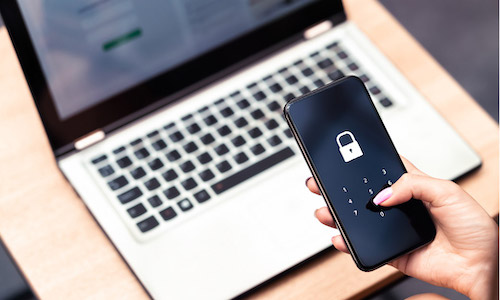World Password Day: Why Selecting a Strong Password is Crucial for Your Online Security

Why selecting a strong password is important
A password is the first line of defense against unauthorized access to your online accounts. With the increasing prevalence of data breaches and hacking attempts, a weak or easily guessable password can make you an easy target for identity theft and other malicious activities. On the other hand, a strong password can help protect your personal and sensitive information, prevent unauthorized access to your accounts, and safeguard your online privacy.
Mistakes people make when picking a password
One of the most common mistakes people make when selecting a password is using easily guessable or common words such as “password,” “123456,” or their own name or birthdate. On World Password Day 2018, Nutella publicly suggested “Nutella” as a suitable password, placing it on the easily guessable password list. Also avoid recognizable keystrokes like “qwerty” or “1qaz2wsx”. Hackers often use automated tools that can quickly and easily guess common passwords, making these types of passwords extremely vulnerable to attacks.
Another mistake is using your personal information like family members, famous people, sports teams, or pet names to create passwords. Not surprisingly, tools now exist that can take this information from your social networks and build a list of possible passwords. Also, avoid using the same password for multiple accounts. If one of your accounts is compromised, it can give hackers access to all your other accounts that use the same password. The breach of an insignificant account (like an infrequently used online shopping account) can give unwanted entry to more important accounts, such as banking. It’s important to use unique passwords each time.
Ask yourself honestly, are you using guessable passwords? Have you used identical passwords on multiple accounts? Do any of your personal accounts share the same password as your online banking?
Now what can we do to ensure we are using unique passwords on each account. Let’s look at some tips.
Tips for creating a strong password
This World Password Day, try out the following tips to create strong and secure passwords for your online accounts:
- Use a combination of uppercase and lowercase letters, numbers, and symbols. Place the numbers and symbols within the password, not only at the beginning or end.
- Choose a password that’s at least 12 characters long. The longer the password, the harder it is to crack.
- Use a passphrase that is easy for you to remember but difficult for others to guess. For example, “correct horse battery staple” is a passphrase that is both easy to remember and hard to guess.
- Use a password manager to generate and store unique passwords.
- Change your password regularly, at least every 6 months.
- Enable two-factor authentication whenever possible, for an extra layer of security.
Selecting a strong password is essential for protecting your online accounts and personal information. By avoiding common mistakes and following the tips outlined above, you can create a strong and secure password that will help keep your data safe. Remember, taking the time to select a strong password is a small but crucial step in maintaining your online security.
Through regular security training, companies can significantly reduce the risk of data breaches and protect their confidential information from unauthorized access. Litmos has many courses that can help your organization – check out ransomware prevention, cybersecurity, social engineering and mobile and portable device security.





